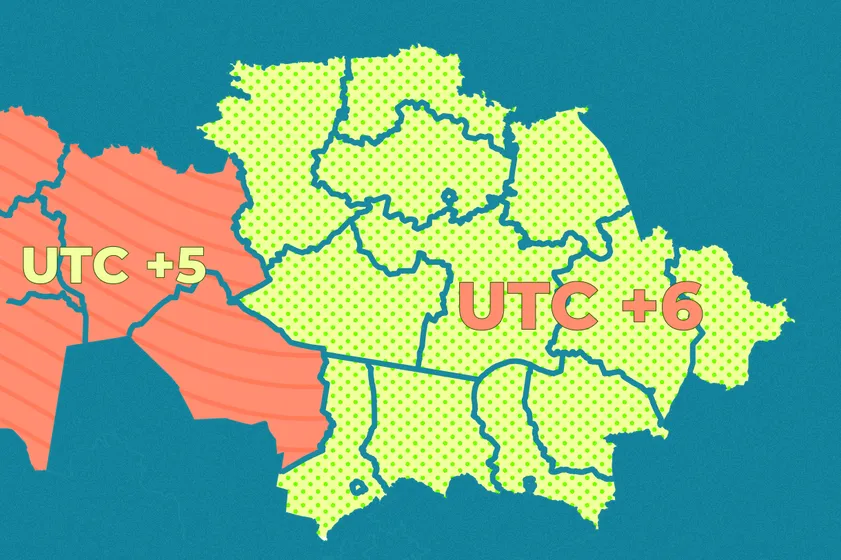On December 1 in Astana, following the final meeting of the interdepartmental working group on time zone observation, the experts prepared a report for the government on establishing a single UTC+5 time zone in Kazakhstan, QazMonitor reports citing the press service of the Ministry of Trade and Integration.
The territory of Kazakhstan is divided into two time zones: UTC+5 in Western Kazakhstan and UTC+6 in the rest of the country. However, scientists believe the UTC+6 time zone does not match natural solar time, which can harm biological rhythms and health of the population. The working group suggests changing the entire country to UTC+5.
The Ministry of Healthcare supports this position, believing that bringing the time zone in line with natural time would have a favorable impact on people’s health.
Most of the Kazakhstan population doesn’t live according to their geographical time zone. A group of expert physiologists studied this issue for a year. From the position of physiology, functioning of the body, and hormonal balance, we are of the opinion that with the transition to the UTC+5 time zone, we will wake up, be awake, and go to sleep following the biological clock of our body.

The experts also stressed the issues of chronic fatigue and diseases emerging from outpacing the natural course of time. Desynchronosis—the discordance of biological rhythms—is the cause of long-term increased fatigue, depression, insomnia, and reduced efficiency observed in the regions. This poses a risk factor for cardiovascular, cancer, and other diseases among the population.
Experts highlight that having a single time zone in the country will not only bring health benefits but also remove time-related barriers among residents in different regions. This change is expected to enhance coordination in transportation and communication, and positively impact business operations as well as interactions between government agencies and emergency services.
The working group looked at how other countries handle time zones. For instance, 175 countries have just one time zone, while only 22 countries use multiple time zones.











